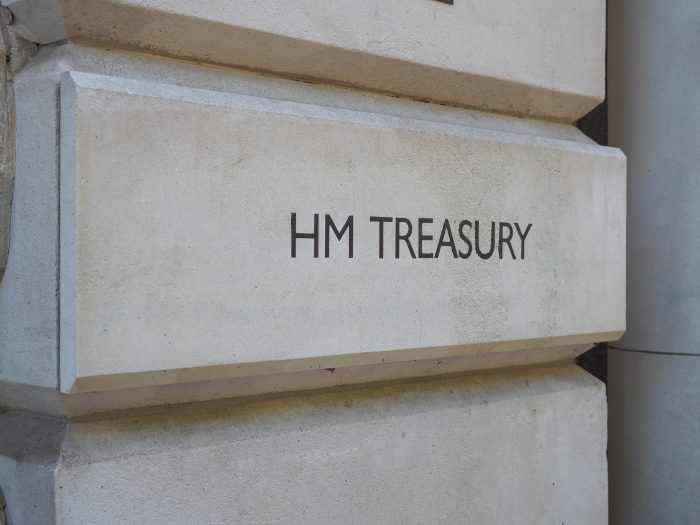Legal advice for golf clubs during the coronavirus pandemic
This guidance, from the National Golf Clubs Advisory Association (NGCAA), is the first of two articles offering legal advice to golf clubs against the backdrop of COVID-19, examining the government’s job reimbursement scheme, self-isolation and SSP, childcare issues and clubhouse and course closures.
Golf clubs have been seeking urgent advice from the NGCAA in the last few days and with further restrictions being placed upon the nation, we set out in this bulletin the most frequently asked questions, latest developments and advice.
Please note that the situation in relation to coronavirus changes very rapidly and that this bulletin is correct as at the date of publication on March 24, 2020
Where golf courses and clubhouses close
It is possible that an employer could terminate the contracts of some or all staff by reason of redundancy, but having spoken with a number of golf clubs it appears as though that is not something for which they have an appetite. Indeed, it is the spirit of our member golf clubs and that of the government that the restrictions put in place across our nation will be temporary. Everybody hopes to get back to playing golf as soon as possible.
Accordingly, we have not focused any advice upon terminating contracts by reason of redundancy, but rather we have looked at other methods of being able to continue the employment relationship, at the same time as seeking to reduce the costs for golf club employers. If a club would like advice on redundancy, please review the advice and templates on our website, as well as contacting us direct for advice if needed.
Staffing
The first thing to examine is to determine which staff can work from home and put those arrangements in place. Those working from home may need to agree a temporary change to their contract of employment for their place of work, which should be approached as a consultation. In the circumstances it is unlikely that many employees will withhold agreement.
There may be some zero hours or casual employees who could be told that there is simply no work for them at the present time.

There may be other workers who can continue on site, but with the appropriate restrictions and risk assessments in place. Golf club employers are strongly advised to follow government advice on distancing and hygiene in relation to any employees who are to continue working.
Lay off and short-time working
Some employers may consider laying off employees or putting them on short time working. The concept of a lay-off is one where the contract is not terminated, but rather suspended when there is a short-term reduction in available work. In order to exercise lay-off, an employer must have the contractual right to do so. It is also worthy of note that qualifying employees will be entitled to claim the statutory redundancy payment or statutory guarantee payment from their employer if lay-off provisions are exercised.
Short time working is again an option where employees might have a shorter working week in return for a consequential reduction in pay. Again, the employer would need the contractual right to put this in place (ideally as a pre-existing clause in the contract) although some employers are able to agree it as and when circumstances change.
Both lay-off and short-time working are less attractive, following the government’s introduction of the Coronavirus Job Retention Scheme.
Coronavirus Job Retention Scheme (CJRS)
As an alternative to redundancy, layoff or short time working, most of our golf club members are considering the new concept of ‘furlough’. It is new to English law, although it is something known in the United States of America. It is essentially a suspension of the contract – the employee is workless, but not jobless. It allows the contract to continue until such a time as levels of work pick up.
At the time of writing, we are in a difficult position in that the government has not yet produced a great deal of detail as to how this system will work. Most importantly, we do not know if there is any particular procedure to follow in order to have an employee furloughed. For example, it is likely that the employee will have to agree to the change in status, rather than it being forced upon them – a need for agreement is suggested from the very small piece of government guidance available at the present time.
It is noteworthy, though, that the government have separated this concept from that of a ‘traditional lay-off’ – most likely in an effort to keep within the CJRS, to retain continued employment and to avoid the ability for employees to claim redundancy or guarantee payments.
An employee must not carry out any work whilst they are furloughed.
The information that we do know in relation the CJRS for furloughed employees at the present is as follows:
- The scheme will start on April 1, 2020 and be backdated to March 1, 2020, to enable organisations to re-employ individuals who have already been laid off and for those workers to recoup lost income
- A business will need to:
- Designate affected employees as furloughed workers
- Notify the employees of this change*
- Submit information to HMRC about the employees that have been furloughed and their earnings through a new online portal (HMRC will set out further details on the information required)
- HMRC will reimburse 80 per cent of furloughed workers’ wage cost up to a cap of £2,500 per month per employee
- HMRC is working urgently to set up a system for reimbursement (the government webpage notes that existing systems are not set up to facilitate payments to employers)
- The government intends for the CJRS to run for at least three months from March 1, 2020 but as stated that will be extended if necessary.
*We recommend that, in the absence of clarity and in order to avoid potential claims, golf clubs should agree with employees that they will be furloughed, rather than ‘forcing’ it upon them.
The government funding available under the scheme overall is unlimited.
One further point which has not yet been clarified is whether employers will be required to fund the 20 per cent shortfall between the payment under the CJRS and the employee’s normal salary. The guidance for employees states that the employer could choose to fund the difference, but it does not have to do so. This would indicate that there is no requirement.

Self isolation and SSP
The law was changed on March 13, 2020 and provides that a person who is isolating themselves from other people in such a manner as to prevent infection or contamination with coronavirus disease, in accordance with guidance published by PHE, NHS National Services Scotland or Public Health Wales and effective on March 12, 2020, by reason of the isolation is unable to work, will be deemed to be incapable of work for the purpose of claiming statutory sick pay.
As well as extending sick pay to being payable for workers for the purposes of self isolating, the legislation was changed so as to provide for the usual three ‘waiting days’ to be scrapped where somebody is absent for coronavirus related reasons, meaning that SSP is payable from day one of such absence.
Workers can self certify their absence for the first seven days and thereafter they are normally required to produce a medical certificate. The government initially indicated that employers would not be required to be as stringent with such certifications, but there is a new online service introduced that provides isolation notes for people who are unable to work for more than seven days because of the coronavirus
In a further note for employers, the government announced that certain eligible SSP costs will be refunded to small and medium-sized employers. The eligibility criteria will be:
- The refund will be limited to two weeks per employee
- Employers with fewer than 250 employees will be eligible
- Employers will be able to reclaim expenditure for any employee who has claimed SSP as a result of COVID-19
- An employer should maintain records of staff absences, but should not require employees to provide a GP fit note
- The eligible period for the scheme will commence from the day on which the regulations extending SSP to self-isolators came into force (March 13, 2020)
- While existing systems are not designed to facilitate such employer refunds for SSP, the government will work with employers over the coming months to set up a repayment mechanism for employers as soon as possible.
Childcare issues
There may be situations where employees have to be absent from work to look after a child as a result of school closures or as a result of the child’s sickness. If it is a situation where they have to look after a poorly child in their household, then that is covered under SSP and the isolation provisions
If a dependent child is not unwell (such as if there is a school closure), then the employee may be entitled to take dependent leave, which is unpaid. That is limited in that it is a reasonable amount of time off and the right only covers time off which is taken in order to take action which is necessary to deal with one of the listed emergencies. It would be envisaged as being a day or two and thereafter arrangements for childcare would be expected to be put in place.
After the initial day or two’s dependent leave, the employee may wish to take annual leave or unpaid leave (with agreement from the employer) if the situation has not been resolved.
It is also possible for a parent to take parental leave prior to the child’s 18th birthday, with that parental leave being an entitlement of up to 18 weeks per child, and is usually limited to four weeks per annum unless the employer agrees otherwise. Again this is unpaid leave. The employer may wish to agree to allow an employee to take parental leave to go beyond four weeks in one year, although with the prospect of reclaiming 80 per cent of wages back it is more likely (depending on the job carried out) that the employee would be furloughed in any event.
These are unprecedented times and government proposals are in very early stages. At the same time, golf clubs are having to move quickly with staff management in the face of restrictions, which is difficult to do when little detail is available.

Alistair Smith
The NGCAA is here to advise its member clubs on the law and we will provide further updates and guidance when we have information. Please do not hesitate to get in touch with Alistair Smith, our CEO, if you need any more advice on 01886812943 or office@ngcaa.co.uk.
For any UK golf club interested in accessing financial support, there is more information here.















Paying a monthly direct debit for membership that is now useless to me.Can I stop the direct debit without penalty
As a fully paid up member am I entitled to either money back or extended membership as course is shut?
Thanks, useful info – has been shared this morning…
Our experiences in surviving and thriving through many episodes of crisis in NYC, tells us by keeping more people employed, you’re more likely to thrive !!! More ideas, more solutions, more suggestions and contributions, more “sleeves rolled-up” and more “hands-on-deck!”